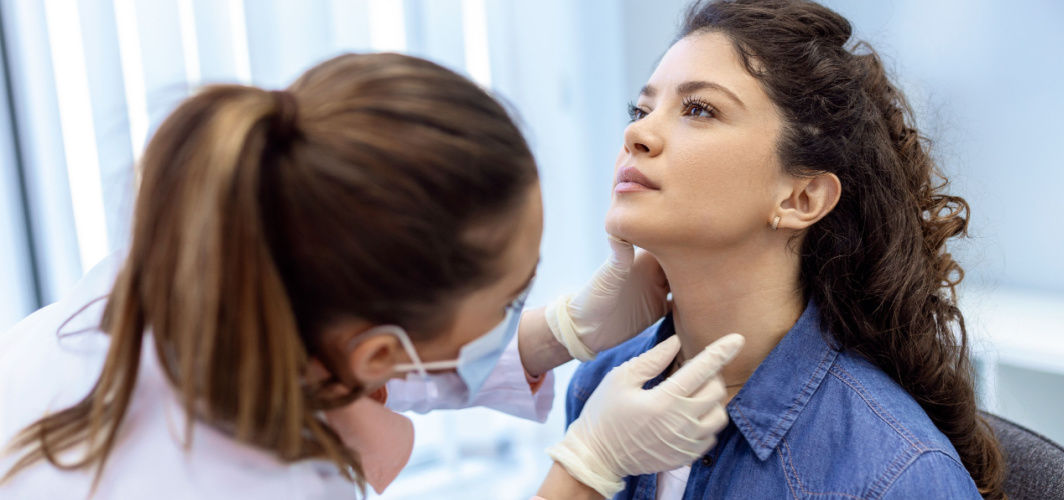General Health
Infectious Disease Doctor: What They Do & What To Expect
10 min read
By Apollo 24|7, Published on - 31 October 2023
Share this article
0
0 like

An infectious disease doctor, also known as an infectious disease specialist or consultant, is a medical professional who specialises in the prevention, diagnosis, and treatment of infections. These healthcare experts play a crucial role in managing infectious diseases, which are caused by microorganisms such as bacteria, viruses, fungi, and parasites. In this blog, we will delve into the world of Infectious Disease Doctors, providing insights into their roles and what you can expect when seeking their expertise.
What are Infectious Diseases?
Infectious diseases are caused by pathogenic microorganisms such as viruses, bacteria, fungi, or parasites. These diseases can range from mild to life-threatening and can affect various parts of the body. Some common examples of infectious diseases include the flu, tuberculosis, malaria, and COVID-19.
The spread of infectious diseases can occur through direct contact with an infected person, through respiratory droplets, contaminated food or water, or vector-borne transmission by insects or animals. It's essential to practise good hygiene, such as handwashing and covering your mouth and nose when sneezing or coughing, to reduce the risk of transmission.
Infectious diseases have a significant impact on public health, leading to increased healthcare costs and a burden on healthcare systems. They can also result in severe illness, complications, and even death if left untreated.
What is the Role of an Infectious Disease Doctor?
An infectious disease specialist, also known as an infectious disease doctor or consultant, plays a crucial role in the management of infectious diseases. These medical professionals possess expertise in diagnosing and treating various types of infections, ensuring the best possible outcomes for patients.
One of the key skills of the best infectious disease doctors is their knowledge of infection control and prevention strategies. They are well-versed in the latest guidelines and protocols to minimise the spread of infectious diseases within healthcare facilities and communities.
In addition to their clinical responsibilities, infectious disease specialists collaborate closely with other healthcare professionals, including primary care physicians, nurses, and public health officials. This teamwork ensures a coordinated approach to managing outbreaks and controlling the spread of infections.
Becoming an Infectious Disease Doctor
To become an Infectious Disease Doctor, one must undergo extensive educational background and training.
1. Educational Background and Training Required
To pursue a career as an Infectious Disease Doctor, one must first complete medical school. This involves obtaining a Bachelor of Medicine, and Bachelor of Surgery (MBBS) degree. After completing medical school, aspiring doctors must then complete a residency program in internal medicine or paediatrics.
Following the completion of a residency program, doctors can choose to specialise in infectious diseases through fellowship programs. These programs typically last two to three years and provide in-depth training in diagnosing and treating infectious diseases. During this fellowship, doctors gain experience in various areas such as clinical research, infection control, and antimicrobial stewardship.
2. Skills and Qualities Required
To become an infectious disease doctor, one must possess a set of skills and qualities that are essential for providing the best possible care to patients. Here are some key skills:
- Knowledge of Microbiology and Immunology: As an infectious disease doctor, a deep understanding of microbiology and immunology is crucial. This knowledge allows them to identify and diagnose various infectious agents accurately.
- Analytical Thinking: Infectious disease consultants need exceptional analytical thinking and problem-solving skills to determine the cause of infections, evaluate complex cases, and develop effective treatment plans. They must be able to connect the dots and think critically to provide the best care.
- Effective Communication Skills: Good communication skills are vital for infectious disease doctors. They must effectively communicate complex medical information to patients, ensuring they understand their diagnosis, treatment options, and preventive measures. Additionally, collaboration with colleagues is essential for optimal patient care, requiring strong communication skills.
Services Provided by Infectious Disease Doctors
In this section, we will delve into the services provided by infectious disease doctors.
1. Diagnosis of Infectious Diseases
To accurately diagnose infectious diseases, these infectious disease experts employ a range of diagnostic methods such as:
- Laboratory Tests: Lab Tests are commonly used to identify the presence of pathogens in the body. These may include blood tests, urine tests, or cultures of body fluids or tissues. By analysing these samples, infectious disease doctors can determine the specific causative agent and devise an appropriate treatment plan.
- Imaging Studies: Imaging studies such as X-rays, CT scans, or MRIs may be conducted to visualise internal organs and identify any abnormalities or signs of infection. Additionally, physical examinations help doctors assess symptoms, observe physical manifestations of infections, and gather important medical history information from patients.
2. Treatment Options for Infectious Diseases
Medications for infectious diseases are designed to target and eliminate the specific bacteria or viruses causing the infection. The most commonly used treatments are:
- Antibiotics: Antibiotics are effective against bacterial infections and work by either killing the bacteria or inhibiting their growth. It is essential to note that antibiotics only work against bacterial infections and are ineffective against viral infections.
- Antiviral Medications: These are specifically designed to target viruses. They help to prevent the virus from replicating, reducing the severity and duration of viral infections.
It's important to understand that infectious disease doctors personalise treatment plans based on patient-specific factors. Factors such as age, overall health, medical history, and the type of infection play a crucial role in determining the most appropriate treatment approach.
3. Prevention and Control Measures for Infectious Diseases
In addition to diagnosing and treating various infectious diseases, infectious disease doctors also play a crucial role in preventing and controlling the spread of these diseases. Here are two key measures they focus on:
- Vaccinations and Immunisations: As experts in infectious diseases, infectious disease doctors are knowledgeable about the latest vaccines and immunisation schedules. By staying up to date with vaccinations, individuals can protect themselves and their communities from contagious diseases such as influenza, pneumonia, hepatitis, and more.
- Guidelines for Infection Control: Infection control is vital in both healthcare settings and communities to prevent the transmission of infectious diseases. Infectious disease consultants provide guidelines on infection control practices that help minimise the risk of spreading infections. These guidelines include proper hand hygiene, appropriate use of personal protective equipment (such as masks and gloves), safe disposal of medical waste, and strategies for isolating contagious patients.
When to Visit an Infectious Disease Doctor?
When it comes to your health, it's important to know when it's time to seek the expertise of an infectious disease doctor.
1. Common Symptoms of an Infectious Disease
Here are some common symptoms that may warrant a visit to an infectious disease specialist:
- Persistent fever, Unexplained Weight Loss, and Fatigue: If you have been experiencing a prolonged fever without any clear cause, along with unexplained weight loss and persistent fatigue, it could be a sign of an underlying infectious disease.
- Frequent or Severe Infections: If you find yourself frequently falling ill with infections or if you have recurring infections that are severe or difficult to treat, it may be beneficial to consult an infectious disease specialist. They can assess your immune system and identify any underlying factors contributing to your susceptibility to infections.
- Travel-related Illnesses: If you have recently travelled to a different region or country and developed symptoms such as diarrhoea, fever, or respiratory issues, it's important to see an infectious disease doctor. They are well-versed in diagnosing and treating travel-related illnesses, including tropical diseases.
2. Conditions Managed by Infectious Disease Doctors
Some commonly managed conditions include:
- HIV/AIDS: Human Immunodeficiency Virus (HIV) attacks the immune system, making individuals susceptible to various infections and diseases. Infectious disease doctors work closely with patients living with HIV/AIDS, providing antiretroviral therapy and managing opportunistic infections.
- Tuberculosis: Tuberculosis (TB) is a bacterial infection that primarily affects the lungs but can also target other organs. Infectious disease doctors are skilled in diagnosing TB through various tests and prescribing appropriate antibiotic treatments.
- Hospital-acquired Infections: These are infections that individuals acquire during their stay in a healthcare facility. Examples include surgical site infections, bloodstream infections, and pneumonia. Infectious disease doctors collaborate with hospital staff to prevent these infections and ensure effective treatment when they occur.
What to Expect During a Visit to an Infectious Disease Doctor?
Here's what you can generally expect during a visit to an infectious disease doctor:
1. Initial Consultation and Medical History Review
When you visit an Infectious Disease Specialist, also known as an Infectious Disease Doctor or Infectious Disease Consultant, you can expect a thorough initial consultation and medical history review. This is a crucial step in diagnosing and treating infectious diseases effectively.
During the consultation, the doctor will engage in a comprehensive discussion about your symptoms, travel history, and any previous treatments you may have undergone. It is essential to provide accurate information to help the doctor make an accurate diagnosis and create an effective treatment plan.
2. Physical Examination and Diagnostic Tests
During your visit to an Infectious Disease Specialist, you can expect a thorough examination of the affected area or system. The doctor will examine you physically, focusing on the specific area or system involved in your infection.
In addition to the physical examination, the Infectious Disease Doctor may order appropriate laboratory tests and imaging studies. These tests are essential for accurate diagnosis and treatment planning.
3. Treatment Plan Development and Management
Once your diagnosis is confirmed, the Infectious Disease Doctor will work closely with you to develop a personalised treatment plan. This plan may involve medications, lifestyle modifications, or other interventions tailored to your specific needs. The goal is to effectively treat the infection while minimising any potential side effects.
In addition to creating a treatment plan, the doctor will schedule follow-up appointments to monitor your progress. These appointments are important for assessing how well the treatment is working and making any necessary adjustments.
Tips for Preventing Infections
In this section, we will delve into some tips for maintaining good health and preventing infections.
1. Practising Good Hygiene Habits
One of the most effective ways to maintain good hygiene is through proper handwashing techniques and frequency. Washing your hands with soap and water for at least 20 seconds, especially before eating, after using the restroom, and after coughing or sneezing, can significantly reduce the risk of infection.
Proper food handling and preparation are also essential for preventing infections. Make sure to wash fruits and vegetables thoroughly before consuming them. Cook food thoroughly to kill any bacteria or viruses that may be present. Avoid cross-contamination by using separate cutting boards for raw meat and vegetables.
2. Vaccination Strategies for Disease Prevention
Vaccinations play a vital role in preventing infectious diseases. It is important to stay up-to-date with recommended vaccines for different age groups and risk factors.
3. Healthy Lifestyle Choices
Maintaining a healthy lifestyle is another key factor in preventing infections.
- A balanced diet rich in fruits, vegetables, whole grains, and lean proteins provides essential nutrients that support the immune system.
- Regular exercise helps improve overall health and strengthens the immune system. Aim for at least 150 minutes of moderate-intensity aerobic activity every week.
- Additionally, getting enough sleep is crucial for maintaining a strong immune system. Aim for 7-9 hours of quality sleep per night.
Conclusion
In conclusion, infectious disease doctors play a crucial role in diagnosing, treating, and preventing infectious diseases. These specialists, also known as infectious disease consultants, have extensive knowledge and expertise in identifying the causes of various infections and developing effective treatment plans. If you suspect an infection or have any concerns related to infectious diseases, don't hesitate to consult the best infectious disease doctors in your area. Take proactive steps to protect yourself and others from potential infections. Remember, prevention is key to maintaining good health.
General Health
Consult Top Infectious Disease specialists
View AllFrequently Asked Questions
How can I find the best Infectious Disease Doctor near me?
How can I find the best Infectious Disease Doctor near me?
What types of infections do Infectious Disease experts treat?
What types of infections do Infectious Disease experts treat?
How do Infectious Disease Specialists diagnose infections?
How do Infectious Disease Specialists diagnose infections?
When should I see an Infectious Disease Specialist?
When should I see an Infectious Disease Specialist?
Leave Comment
Recommended for you

General Health
Halasana to Bhujangasana: 5 Yoga Poses To Manage Thyroid Problems
Some yoga poses like Halasana, Sarvangasana and Matsyasana can help improve the functioning of the thyroid gland, thereby reducing the risk of any thyroid disorder. Read this article to know more about these asanas.

General Health
Which Is The Best Oil For Cooking?
Your cooking oil can affect your health adversely. Read to know which oil is best for cooking.

General Health
Is Drinking Ice-Cold Water Bad For Your Health?
Both cold and warm water can keep you hydrated and promote digestion, with no conclusive evidence to suggest that cold water is bad for the body. Read to know more.
Subscribe
Sign up for our free Health Library Daily Newsletter
Get doctor-approved health tips, news, and more.
Visual Stories

Plant-based Foods That Are a Great Source of Iron
Tap to continue exploring
Recommended for you

General Health
Halasana to Bhujangasana: 5 Yoga Poses To Manage Thyroid Problems
Some yoga poses like Halasana, Sarvangasana and Matsyasana can help improve the functioning of the thyroid gland, thereby reducing the risk of any thyroid disorder. Read this article to know more about these asanas.

General Health
Which Is The Best Oil For Cooking?
Your cooking oil can affect your health adversely. Read to know which oil is best for cooking.

General Health
Is Drinking Ice-Cold Water Bad For Your Health?
Both cold and warm water can keep you hydrated and promote digestion, with no conclusive evidence to suggest that cold water is bad for the body. Read to know more.


